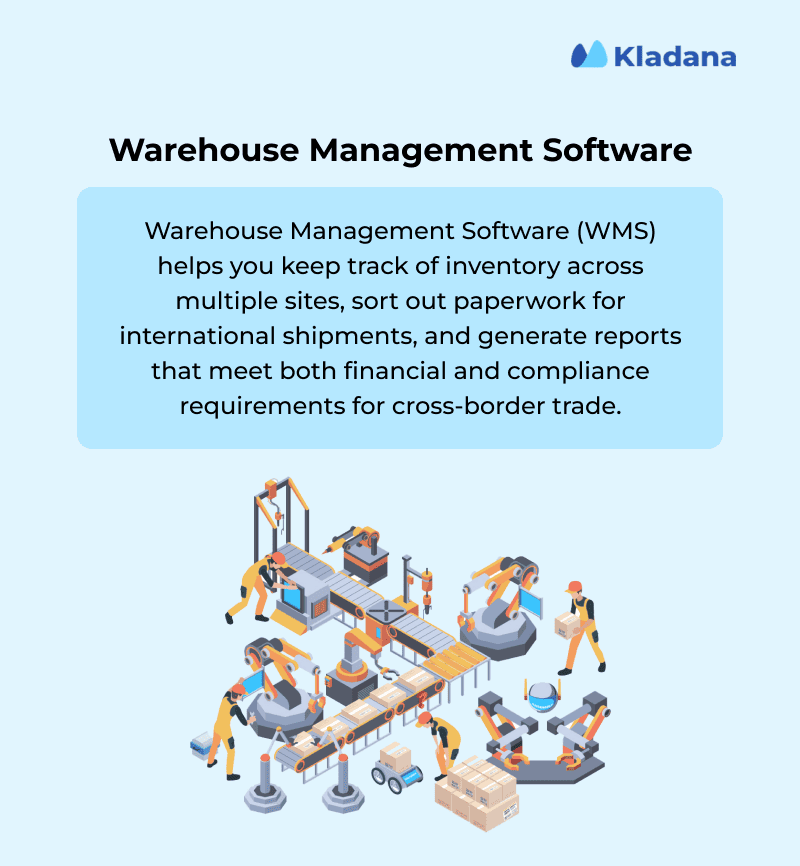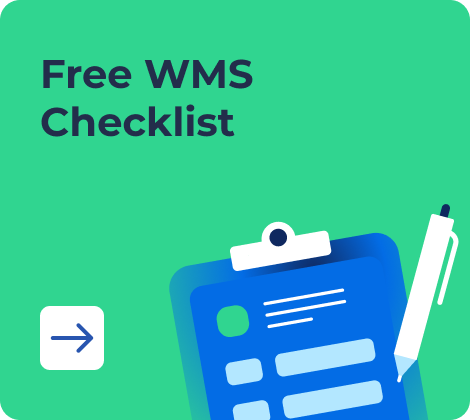In the UAE, many SMEs are actively seeking ways to improve how their warehouses run. Not because they’re chasing flashy tech, but because the pressure is real. Orders are increasing. Customers expect shorter delivery windows. Mistakes carry real costs.
Managing these demands across multiple locations without efficient systems becomes a growing challenge.
That’s why many companies in Dubai, Abu Dhabi, and Sharjah are now exploring warehouse management system options. It is to bring structure, clarity, and real-time updates to their operations.
Statista predicts that the UAE’s logistics sector will exceed $31bn by 2026. Growing at this scale usually places huge demands on businesses. Even the smallest players must stay sharp amid fierce competition.
Read on to find out how these systems work, why they matter for SMEs, and what the local factors help shape the best choices for warehouse setup.
Why UAE Businesses Are Turning to Warehouse Automation
With its geographic position linking the Middle East, Africa, and Asia, the UAE plays a critical role in regional and international trade.
Dubai’s Jebel Ali Free Zone, Abu Dhabi’s KIZAD, Dubai South, and Sharjah are major industrial zones for logistics and transportation. These places are essential gateways where bonded shipments, re-exports, and cross-border supply happen.
So, a warehouse system management software (WMS) can help monitor inventory across scattered sites, organize documentation for international shipments, and generate reports to match the financial and regulatory requirements of cross-border operations.

Below, we’ve outlined UAE-specific peculiarities for WMS to understand why businesses there are turning to warehouse automation.
UAE — A Logistics Hub
For businesses, managing stock across multiple hubs means more than simply counting boxes. A powerful WMS helps companies monitor inventory across scattered sites, organize documentation for international shipments, and generate reports.
It also unlocks —
- Multi-location tracking to monitor stock across local and international warehouses.
- Cross-border shipment handling to keep tabs on goods in transit, making customs paperwork and clearance easier.
- Multi-currency support to price, track, and report different currencies depending on trading partners.
Omnichannel Pressure and Fulfillment Expectations
The same-day or next-day delivery is a new standard. So, you need WMS tools that provide instant stock updates, efficient pick-and-pack processes, and clean order handoffs to couriers.
Each of these sales points connects back to the same inventory pool, which makes inventory syncing a crucial step with —
- Instant stock syncing: Prevents overselling or duplicate orders across platforms.
- Fast pick-and-pack workflows: Reduce delays by guiding workers through efficient picking routes.
- Clear return handling: Tracks returned items into available stock, avoiding write-offs or mistakes.
Labor Cost and Automation
Warehouse managers cut down errors, reduce packing time, and eliminate spreadsheet-based updates that slow operations. You can bring down labor costs with automation using WMS through —
- Barcode scanning: Speeds up counting, picking, and receiving.
- Mobile workflows: Help teams update stock directly on the warehouse floor.
- Reduced manual entry: Cuts down spreadsheet-based updates and related errors.
Language and Localization
Warehouses across Dubai, Abu Dhabi, and Sharjah often combine teams speaking Arabic, English, Hindi, Urdu, and Tagalog. So, a WMS for businesses in Dubai requires the following features:
- Multi-language interfaces: Ensures every team member can use the system confidently.
- Simple, visual workflows: Helps non-technical staff understand tasks without heavy training.
- Locally adapted support: Offers smooth onboarding and troubleshooting tailored to the regional workforce.
Infrastructure and Tech Readiness
The UAE’s strong connectivity makes cloud-based WMS tools appealing for most operations. Yet in some locations, like remote warehouses or sites with spotty internet, offline-sync modes still hold value.
Warehouse teams rely on mobile-friendly access so that they can fit easily into smartphone or scanner workflows. So, what’s needed is —
- Cloud-first solutions: Provide real-time updates and off-site visibility for management teams.
- Offline sync options: Ensures that remote or semi-connected warehouses can still operate smoothly.
- Mobile-friendly interfaces: Let teams work from scanners or smartphones without needing desktop stations.
Compliance and Reporting
In Free Zones like JAFZA, WMS platforms often need to manage customs stock reporting and bonded inventory for sectors such as pharmaceuticals, food, electronics, etc.
Software integration with VAT-compliant accounting tools can offer:
- Customs and bonded reporting: For Free Zone operators managing bonded stock.
- Batch and expiry tracking: For sectors like pharmaceuticals, F&B, and electronics.
- Serial number logging: Helps with warranty tracking and precise product tracing.
Why UAE Businesses Choose Kladana as Their WMS Solution:
✅ Real-Time Inventory Accuracy — Track every item across your warehouse with live updates to prevent stockouts, overstocking, and order delays.
✅ Automated Order Fulfillment — Speed up picking, packing, and shipping with smart workflows that reduce manual work and cut turnaround time.
✅ Error-Free Stock Handling — Minimize mistakes with barcode-based stock movements and automated documentation that reduces human error.
✅ Data-Driven Warehouse Insights — Access detailed reports on inventory, order status, and productivity to make informed decisions and optimise operations.
✅ Stronger Supply Chain Coordination — Improve collaboration with suppliers and customers through accurate stock data, faster dispatches, and transparent processes.
✅ Tailored for UAE Operations — Built to serve the needs of fast-growing UAE businesses with multi-user access, Arabic interface options, and VAT-compliant invoicing.
Best WMS Solutions
Getting the right warehouse management system (WMS) in the UAE requires you to first know what is available out there.
Below are some of the major WMS tools that businesses can consider using.
1. Kladana
![]()
Very useful for small and mid-sized businesses needing real-time visibility across multiple warehouses. Essential warehouse features like barcode tracking, picking, and stock movement without complex setup can help UAE companies use Kladana for centralizing their operations.
Suitable for
Small to mid-sized businesses in retail, wholesale, or light manufacturing who require an affordable cloud-based WMS with easy deployment.
Key Features
- Real-time inventory updates across locations
- Barcode-ready picking and packing system
- Mobile access for warehouse teams
- Batch and expiry date tracking
- Integration with e-commerce and accounting tools
Pricing & Plan
A Free plan includes inventory management, sales, and purchasing modules. Paid plans start from $60 per user/year.
2. FirstBit WMS
![]()
Businesses choose BirstBit WMS for its strong regional support as it integrates well with accounting systems and remains flexible in deployment and deep customization.
Suitable for
Local UAE firms in trading, distribution, or manufacturing that need tailored WMS setups, especially those with accounting integration needs.
Key Features
- On-premise or cloud options
- Local UAE partner support
- Accounting module integration
- Multi-language interface (Arabic/English)
- Warehouse-specific reporting tools
Pricing & Plan
Tailored quotes depending on business size and modules chosen.
3. Zoho Inventory
![]()
Zoho Inventory is part of the broader Zoho ecosystem that small teams can use as an easy entry point into inventory and warehouse tracking. It connects directly with online stores and marketplaces, which is ideal for e-commerce-focused businesses.
Suitable for
Startups, e-commerce sellers, and SMEs that need lightweight inventory and order management.
Key Features
- Multi-channel sales sync (Amazon, eBay, Shopify)
- Inventory and order tracking
- Barcode scanning
- Batch and serial number tracking
- Simple WMS automation features
Pricing & Plan
Free plan (up to 50 orders/month) and paid plans start at $29/month
4. Oracle WMS Cloud
![]()
Cloud-based WMS that delivers an enterprise-level system and is built for large-scale operations. It can handle complex logistics workflows and integrates into the full Oracle SCM suite.
Suitable for
Large enterprises with extensive supply chains and complex fulfillment workflows.
Key Features
- Automated wave picking
- Yard and dock management
- Labor management tools
- Real-time analytics and dashboards
- Deep Oracle ERP integration
Pricing & Plan
Custom enterprise pricing based on modules, users, and contract length.
5. SAP EWM
![]()
An Extended Warehouse Management (EWM) built for global enterprises with greater control needs. It integrates with SAP’s ERP suite and supports advanced workflows across industries.
Suitable for
Enterprises with multi-site, international warehouse networks and deep SAP ERP environments.
Key Features
- Advanced material flow and slotting
- Labor and resource management
- Complex supply chain visibility
- Integration with IoT devices
- Batch management and serial tracking
Pricing & Plan
Enterprise licenses and custom pricing are bundled within SAP S/4HANA.
6. Logiwa
![]()
A cloud-based WMS tailored for e-commerce and wholesale fulfillment. It syncs inventory and orders across multiple channels, which is useful for growing mid-sized businesses.
Suitable for
Mid-sized B2C/B2B brands that need cloud-based fulfillment with strong e-commerce integrations.
Key Features
- E-commerce and marketplace integrations (Shopify, BigCommerce, Amazon)
- Automated pick-pack-ship workflows
- Real-time inventory visibility
- Mobile scanning
- Scalable multi-warehouse management
Pricing & Plan
Customized, volume-based pricing.
7. NetSuite WMS
![]()
NetSuite’s WMS is part of its broader cloud ERP ecosystem, providing businesses with robust warehouse tools that connect directly into finance, sales, and procurement workflows.
Suitable for
Mid-sized to large companies that have unified warehouse, finance, and sales systems in a single cloud ERP.
Key Features
- Advanced picking and wave management
- Mobile barcode scanning
- Bin management and putaway rules
- Integration with NetSuite ERP
- Real-time reporting and dashboards
Pricing & Plan
Custom pricing based on modules, user count, and contract.
8. Fishbowl WMS
![]()
A popular choice for manufacturers and wholesalers looking for an affordable WMS with strong inventory and production tracking. It also integrates well with QuickBooks and Xero, making it appealing for SMEs.
Suitable for
Small and mid-sized manufacturers or wholesalers using QuickBooks or Xero, and those who need warehouse and inventory control.
Key Features
- Order picking and packing
- Manufacturing work orders and tracking
- Barcode scanning
- Inventory forecasting
- Integration with QuickBooks/Xero
Pricing & Plan
Request a quote.
9. Netiquette ERP WMS
![]()
It offers a cloud-based WMS module as part of its SME-focused ERP suite. Based in Singapore, Netiquette serves clients across the GCC, including the UAE, providing an affordable entry point for cloud warehouse management.
Suitable for
Small to medium businesses in the GCC who want a SaaS-based ERP with a simple warehouse module.
Key Features
- Cloud-based WMS
- Multi-location inventory management
- Integrated finance, HR modules
- Accessible on web and mobile
- Localized support across Southeast Asia and GCC
Pricing & Plan
Currently, only annual plans are available (starting at around $185 per year), with a free trial or demo available.
10. Odoo WMS
![]()
Odoo offers a modular ERP platform, and its WMS module is popular among UAE businesses wanting open-source flexibility because of its customizable features.
Suitable for
SMEs to mid-sized firms that rely on customizable, open-source WMS with strong local support.
Key Features
Open-source with flexible customization
Barcode and RFID support
Multi-warehouse, multi-company capabilities
Full integration with Odoo apps (, sales, manufacturing)
Mobile-friendly interface
Pricing & Plan
There is a free community version available, as well as a paid enterprise version with modular pricing, starting at approximately $14 per user per month (pricing depends on the region).
How to Choose the Right WMS for Your Warehouse
There are a lot of WMS tools and features out there. So, we’re breaking down for you how you can choose the one that suits your business’s real-world needs, and provide a checklist too.
These key factors are best considered when picking a WMS.
Fit the System to Your Business Size
Small warehouses may only need simple stock lists. Larger setups handle thousands of SKUs, or multiple sites need robust, scalable systems.
Decide Between Manual Checks or Barcode Tools
Manual updates can work in low-volume setups, but barcode scanning cuts errors and speeds up picking when orders increase.
Choose Cloud or On-Site Setup
Cloud WMS that offers remote access and live updates. On-site setups provide control but require IT support and upfront investment.
Evaluate Local Support and Training
Check if vendors provide English and Arabic support, practical staff training, and reliable on-site or virtual help.
Pro Tip: Ask vendors for UAE client examples, and confirm whether they offer offline sync, barcode printing, or mobile integrations to fit your daily operations.
Here’s a quick readiness checklist for your business:
☑ Are you tracking stock across multiple warehouses or zones?
☑ Are stock errors or picking delays hurting delivery times?
☑ Do you need mobile access or barcode/RFID support on the floor?
☑ Does your team need an Arabic/English interface or bilingual support?
☑ Will you grow into features like batch tracking or multi-currency handling?
If you’re answering yes to these, it’s a strong sign your business is ready for a WMS upgrade.
Kladana is built for small and growing businesses that want to keep things simple, stay organized, and scale operations without switching tools every six months.
Final Thoughts: Start Small, Scale Fast
A small or mid-sized business in the UAE can use WMS for order accuracy, happier customers, and smooth operations. As discussed earlier, you can begin gradually by focusing on what matters most: live inventory tracking, straightforward picking flows, and mobile-friendly tools that keep your team connected.
Once these core features settle in, you add more like barcode-based tracking, multi-site coordination, or advanced data insights.
Try having a well-matched WMS that solves business problems of today and is able to handle tomorrow’s challenges with confidence.
For this, try Kladana’s WMS. It’s a great pick to get started with WMS for UAE businesses. You get barcode tracking, multi-location monitoring, and real-time stock visibility with Kladana, which is highly beneficial for small to medium operations.
Build Smarter, Efficient Warehouse Operations in UAE
Kladana’s WMS helps UAE businesses manage stock, streamline fulfilment,
and reduce manual errors.
FAQs on Choosing the WMS for UAE
Curious about warehouse management systems in the UAE? Here’s a quick roundup of the most common questions.
What is a warehouse management system (WMS)?
WMS is a set of tools that organizes warehouse tasks like tracking stock, picking, packing, and order handling.
Which is the best WMS software in the UAE?
The best WMS depends on your business size, needs, and budget. For starters, Kladana can be a great choice.
How does a WMS improve warehouse operations?
A WMS helps cut stock errors, speeds up fulfillment, and gives real-time visibility.
What’s the difference between inventory software and a full WMS?
Inventory tools track stock while a WMS adds picking, barcode scanning, and detailed workflows.
Are there cloud-based WMS options for small businesses in the UAE?
Yes, cloud-based tools like Kladana offer cloud access with mobile support.
Can a WMS integrate with e-commerce platforms like Shopify or Amazon?
Yes, most modern WMS systems integrate with major e-commerce platforms.
What features should I look for in warehouse software for UAE logistics?
Focus on real-time updates, barcode tools, mobile use, and Arabic/English support.
How much does warehouse management software cost in the UAE?
Prices range from low-cost SaaS plans to enterprise solutions, based on features and scale.
Is barcode scanning supported in most WMS tools?
Yes, many offer built-in barcode generation and tracking.
Do UAE warehouses need software that supports Arabic or multi-language UIs?
Often, yes. Many UAE warehouses need bilingual (Arabic/English) interfaces for teams.
List of Resources
Statista — Value of the logistic market in the United Arab Emirates in 2021 with a forecast for 2026

